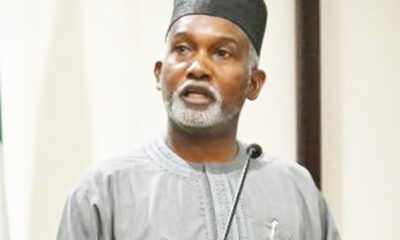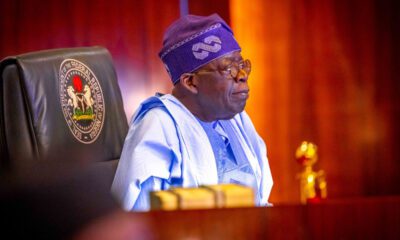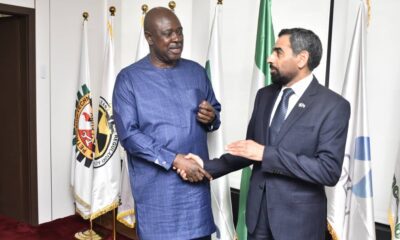News
Health hazard: FG disables solar panel batteries in FCT school
The Federal Government has disabled batteries of solar panels installed at Junior Secondary School, Gui along Airport road in FCT over health hazards.
The directive was given to the Environmental Health Council of Nigeria (EHCON) by the Minister of Environment, Muhammad Abdullahi, following hazardous emission of substance from some of the solar batteries.
Deputy Registrar, EHCON, Dr Andy Ukah, representing the EHCON Registrar, Mohammed Yakubu at the inspection of the solar batteries on Monday in Abuja, said the emission was capable of causing health hazards to the school and entire community.
Ukah, also the National Coordinator, National Institute of Environmental Health, described the incidence as a public health issue that deserved urgent attention.
“The Minister of Environment directed the council to investigate solar panel batteries emitting substances capable of causing health hazards to the people and Gui community.
“The incidence occurred on Thursday whereby some solar batteries in the school were emitting smoke,” he said.
Director, Junior Secondary Schools, FCT Universal Basic Education Board (UBEB),Rahmatu Nusa, attributed the problem to swollen batteries resulted from continuous charging of the batteries without discharging energy.
According to her, the incidence occurred on Thursday and immediately the batteries were switched off.
Environmental Health Officer and Air Quality Monitoring Consultant, EHCON,Dr Fatima Mohammed, identified potential dangers of the emission as irritation to skin, eyes, nose and the throat.
She said chronic long term exposure could lead to diseases of the lung, confusion and brain damage.
According to her, in plants it can lead to corroding of the chlorophyll, causing stunted growth of plants among others.
Also, Kingsley Nwigwe, an engineer with W. Wireless Mechatronics identified possible cause of swollen batteries as usage of bad ones.
“The system has charged controller that regulated the charging system, in as much as the battery is used, it replaces the energy being used and can never over charged.
“However bad ones keep receiving energy they never get filled up so it gets swollen if they are over charged,” he said.
Nwigwe however advised on routine inspection of solar batteries “specifically every three months, to avoid endangering the lives of the populace.”
The Principal of the school, Adamu Danlami said while on official duty, the staff alerted him that the panel suddenly stopped working and noticed emission of smoke from the battery.
48 panels where so far installed in the school.
News
Tinubu vows crackdown on ‘treasonable’ IPOB after soldiers’ killing
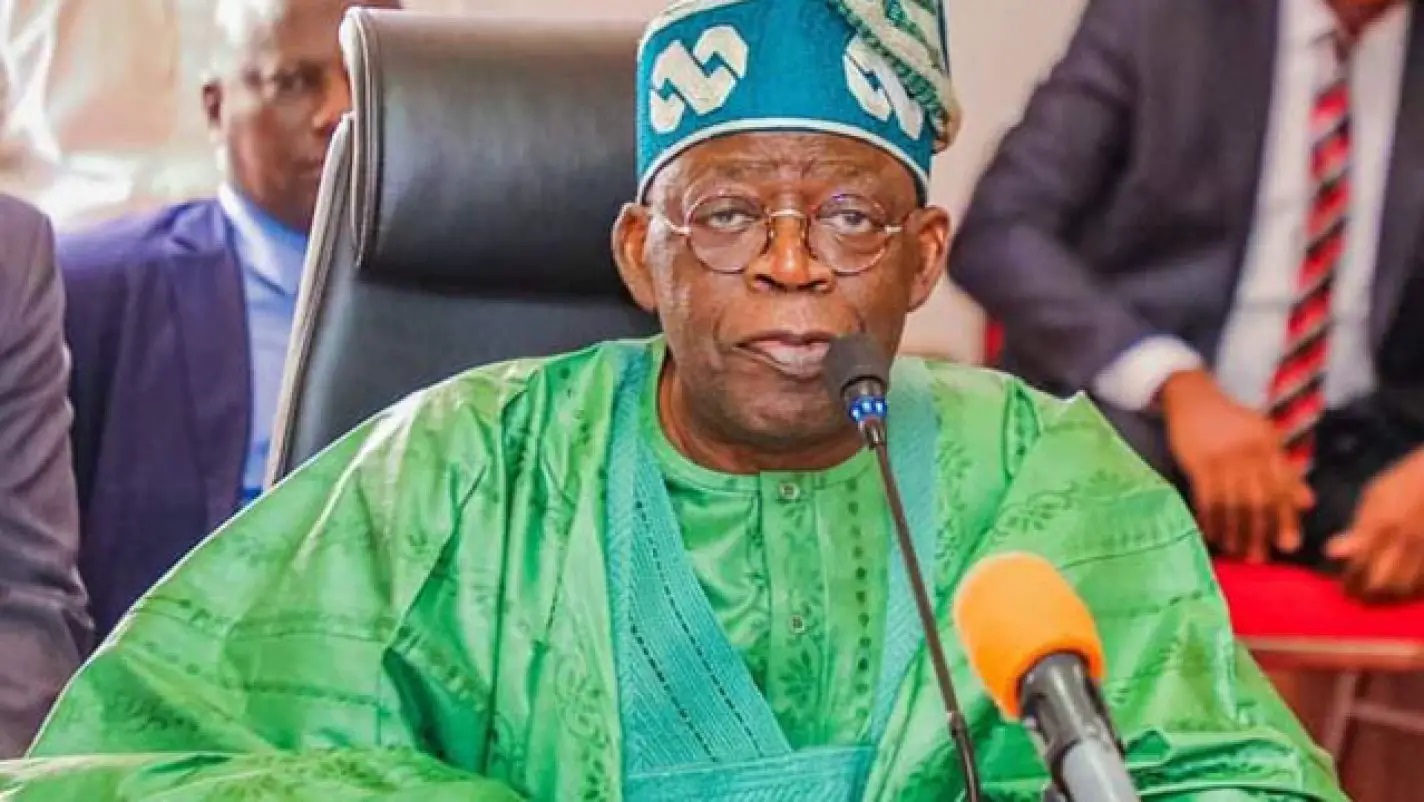

President Bola Tinubu has condemned the killing of five soldiers by suspected Indigenous People of Biafra, vowing stern action against the perpetrators and those calling for a sit-at-home order.
In a statement on Saturday, Tinubu described the attack in Aba, Abia State, as an “unwarranted barbaric and evil act” that should never be tolerated in the country.
“These unwarranted barbaric and evil acts stand condemned and should never be condoned and tolerated in our country,” the president stated.
“Our soldiers and the police have the onerous duty to protect all of us from aggressors and non-state actors. Hundreds of them have paid the ultimate price in fulfillment of their duty, while some have experienced the indignity of being manhandled by the people they protect,” he added.
Tinubu vowed that the federal government would come down heavily on those who have made it a habit to attack officers and men of the armed forces. “On no account should anyone, under any guise, have the audacity to kill agents of the state,” he asserted.
The president also issued a stern warning to those calling for a sit-at-home order, labelling their actions as “nothing but a treasonable offence.”
“I urge security agencies not only to fish out the masterminds and perpetrators of the Aba attack but also those calling on people to stay at home. Their action is nothing but a treasonable offence,” Tinubu stated.
The president further declared, “I want to make it clear that the government of the Federal Republic of Nigeria and the armed forces have the capacity to crush violent non-state actors, making our communities unsafe.”
However, Tinubu also urged restraint from security forces, stating, “The fact that the security forces are exercising necessary restraints should not be mistaken for weakness. We are working to build a peaceful and harmonious society, but nobody should be under any illusion that the government will not act appropriately when the lives of our officers and men are wantonly taken.”
Extending condolences to the families of the slain soldiers and the armed forces, the president urged other peacekeeping personnel not to be discouraged by the Aba incident.
On Thursday, gunmen in an attack left five soldiers dead at a checkpoint at Aba in Abia State.
The attack, which occurred at Obikabia junction in Aba, was reportedly carried out by suspected members of the proscribed Indigenous People of Biafra in a bid to enforce sit-at-home.
They also burnt down security patrol vehicles while enforcing the sit-at-home directive meant to commemorate Biafra Day.
News
Aliko Dangote’s noble quest for Africa’s self-sufficiency and prosperity
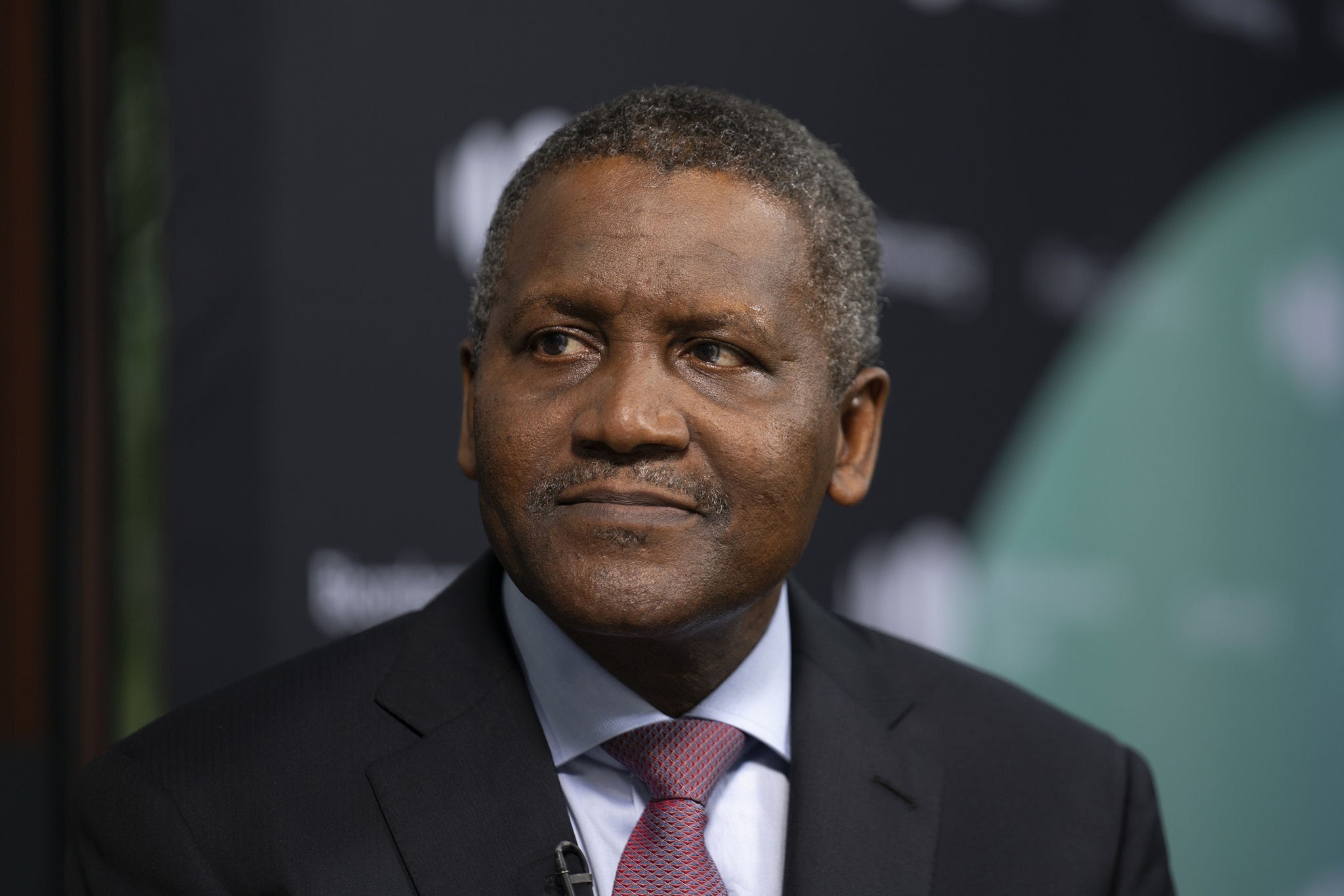

By Abiodun Alade
Africa is a resource-rich continent but relatively poor in terms of manufacturing goods. According to the 2023 African Trade Report by the African Export-Import Bank (Afreximbank), the 54 countries of Africa combined accounted for only about 2.9 per cent of global trade in 2022, slightly up from 2.7 per cent in 2021. This figure drops to 0.8 per cent when only manufactured goods are considered. Despite growing by 20.9 per cent to reach $1.43 trillion in 2022, Africa’s total merchandise trade remains marginal.
In 2023, China’s total trade with Africa experienced a modest 1.5% growth, reaching $282.1 billion, according to a report by Diplo, an international non-profit organisation. It noted further that the trade deficit for Africa with China expanded, as Chinese exports to the continent increased by 7.5% to $173 billion, while imports from Africa decreased by 6.7% to $109 billion.
With a burgeoning population, abundant resources, and an increasingly dynamic entrepreneurial spirit, Africa holds immense potential for growth and prosperity. However, Africa’s potential remains largely untapped as the continent continues to export raw materials while importing finished goods.
As aptly put by the founder and CE of the Dangote Group, Aliko Dangote, at the recently held Africa CEO Forum in Kigali, Rwanda, the continent is indirectly importing poverty while exporting jobs.
Dangote is one African whose unwavering commitment to Africa’s advancement is reshaping industries and driving self-sufficiency across the continent.
At the heart of Dangote’s vision lies the belief that Africa’s future prosperity hinges on its ability to harness its own resources and capabilities. This conviction is not mere rhetoric; it is backed by concrete actions and investments totalling over $25 billion in the past seven years alone, as he revealed during the Africa CEO Forum.
“The future is Africa. We have whatever it takes to make Africa great. And that is why I’m not only putting in my own money, but I’m also putting my soul and life in Africa to make Africa great. Like what I keep saying, nothing is impossible in Africa. In the last seven years, we have invested more than $25 billion in terms of making Africa self-sufficient in fertiliser, in petrochemicals, in refined products, and also continue with the expansion of our cement business,” he said.
Central to Dangote’s transformative agenda is the development of critical infrastructure, particularly in the energy sector. His company’s landmark achievement, the completion of Africa’s largest petroleum refinery, marks a significant milestone in the continent’s quest for self-reliance. With a refining capacity of 650,000 barrels per day, the refinery is poised to reduce Africa’s dependence on imported petroleum products and create a robust ecosystem for downstream industries in a major boost to the economies of Nigeria and the continent.
By harnessing Africa’s abundant crude oil resources to produce refined products locally, Dangote aims to catalyse a virtuous cycle of industrial development, job creation, and economic prosperity.
The refinery’s strategic significance extends beyond Nigeria’s borders, as it aims to supply refined products to neighbouring countries in West, Central, and South Africa. This ambitious endeavour not only addresses the continent’s energy needs but also catalyses regional integration and economic cooperation – a testament to Dangote’s vision of Africa as a united and self-reliant entity.
“Our refinery is quite big. It is something that we believe Africa needs because we asked ourselves, do we really refine the oil we consume? Do we really refine the oil we produce? The answer is no. You look at the entire continent, there are only two countries that don’t import petroleum products, which is a tragedy. Only Algeria and Libya, while the rest are all importers. So, we need to really change it by making sure that we don’t just produce raw material. We should produce finished products and create jobs. One of the things that we need to know as Africans is that yes, we produce raw materials, then export them. When you export raw materials, and somebody now keeps importing things into your continent and dumping goods; you are importing poverty while exporting jobs. So, we must change the narrative,” he added.
Beyond petroleum refining, Dangote’s vision for self-sufficiency is the cultivation of indigenous capabilities across critical sectors, including the production of essential petrochemicals such as polypropylene, polyethylene, base oil, and linear alkylbenzenes.
Dangote’s foray into the production of base oil – a crucial component of lubricants and engine oils – underscores his commitment to fostering self-sufficiency and reducing Africa’s dependency on imported petroleum products. By investing in state-of-the-art facilities and leveraging cutting-edge technologies, Dangote is poised to transform Africa’s lubricant industry, providing a reliable source of high-quality base oil to meet the continent’s growing needs.
Moreover, Dangote’s ventures into linear alkylbenzenes – a key ingredient in the production of detergents – highlight his holistic approach to industrial development and sustainability. By producing linear alkylbenzenes locally, Dangote not only supports the growth of Africa’s detergent industry but also reduces the continent’s reliance on imported raw materials, thus enhancing its economic resilience and self-reliance.
His investments in fertiliser production, for instance, seek to address Africa’s chronic dependency on imported fertilisers – a vulnerability that undermines food security and agricultural productivity. Through strategic partnerships and innovative technologies, Dangote is working to localise fertiliser production, thereby empowering African farmers and reducing the continent’s reliance on foreign inputs.
Speaking on the significance of his investments, Dangote noted, “We have enough gasoline to give to at least the entire West Africa, we have enough diesel to give to West Africa and Central Africa. We have enough aviation fuel to give to the entire continent and export some to Brazil and Mexico.
“What we’re doing as an African company and we’re proudly African is to see how we can make Africa self-sufficient not only in petroleum products. Today, our polypropylene and polyethylene will meet the demand of Africa.”
“Today, we’re doing base oil, which is to do like engine oil. We’re doing linear alkylbenzenes which is raw material to produce detergent. Africa has a population of 1.4 billion people, but nobody is producing that in Africa. So, we import the raw material for all our detergents. We’re producing the raw material to make Africa self-sufficient. And as I said, give us three or four years, Africa will not import any more fertiliser from anywhere,” he said.
By leveraging Africa’s abundant natural resources and harnessing the ingenuity of its peoples, Dangote is pioneering a new paradigm of economic development – one rooted in self-reliance, innovation, and inclusive growth.
However, Dangote’s quest for self-sufficiency is not without its challenges. From logistical constraints to regulatory complexities, the journey towards economic autonomy is fraught with obstacles that require perseverance, resilience, and creative problem-solving. Yet, his unwavering resolve, remarkable fortitude, and entrepreneurial spirit have enabled him to surmount these hurdles, transforming adversity into opportunity and paving the way for Africa’s renaissance.
In adherence to his avowed commitment to an empowered Africa, Dangote is laying a historic foundation for Africa’s self-sufficiency and economic empowerment through bold investments, strategic partnerships, and a relentless pursuit of excellence.
By producing value-added products locally, Dangote aims to reverse the narrative of Africa exporting raw materials and importing finished goods – a paradigm shift that promises to create jobs, empower millions of Africans, and alleviate poverty across the continent.
Without doubt, Dangote Group is focused on building local manufacturing capacity to generate employment, reduce capital flight and increase local value addition. And the arrowhead of the conglomerate, Aliko Dangote is selflessly bent on making Africa a better place for the dwellers and new generations unborn. How noble, how positive for a deserving continent!
News
Private sector accepts FG N60,000 minimum wage — MAN DG


The Director-General of the Manufacturing Association of Nigeria, Ajayi Kadri, has confirmed that the organised private sector accepted the Federal Government’s proposal for a new minimum wage of N60,000.
Ajayi disclosed this during an interview on TV station in Abuja on Saturday.
He clarified that ongoing negotiations between the government, the private sector and labour were focused on establishing a minimum wage rather than a living wage which represents the lowest amount that can be paid to any worker in the country.
He also stressed that both labour and private businesses have been facing significant economic challenges, making it extremely difficult for them to meet the wage demands put forward by labour unions.
He stated, “To start with, this is a very difficult time for anyone to negotiate minimum wage. From the perspective of government, labour and organized private sector, we operate in an environment where there is general acceptance of the fact that the macroeconomics are not right, even the global economy is experiencing a lot of shakeups and the aftermath of government necessary reforms.
“From the beginning of the negotiations of the minimum wage, it’s evident to the tripartite— that is the government, labour, and organized private sector— that we are going to operate in a difficult terrain.
“Incidentally, the organized private sector and government have offered N60,000 as the minimum wage and I think it is very important for us to understand that what we are talking about is the minimum wage. That is what some people have called the walk-in wage. That is the amount we will pay the least workers in the country. It is the minimum wage we are negotiating, not a living wage,” Ajayi said.
Ajayi disclosed further that both the government and the private sector face significant constraints in fulfilling the proposed N419,000 living wage request.
He mentioned that the private sector, for example, is dealing with economic challenges and inflation, making it impossible to pay such an amount.
He also explained that this is not the most appropriate time for organized labor to negotiate a new minimum wage. Instead, they should collaborate with other stakeholders to strengthen the economy.
“All of us in the tripartite— the government, the labour, and the private sector — we all knew that we were operating in a very difficult environment. The government itself realized that it had limited capacity to pay. The private sector is constrained by microeconomic, infrastructure and security challenges. So, we are also constrained to pay.
“Labour on its part, is under intense pressure from its constituencies to ask for a higher wage because inflation has hit the roof and the operating environment is tough.
“Throughout the negotiation process, we made it known that this is not the best time to negotiate minimum wage. This is the time for us to agree, the crew behind the government, and grow the economy in such that we will bake a bigger cake and then we’ll be able to share,” the director general added.
He, however, appealed to the organised labour to reconsider its decision to embark on a nationwide strike.
He noted that the labour walking out of discussions and declaring strike would not help matters.
He added that it is unfortunate that labour rejected the N60,000 offer from the government and the organised private sector, choosing to declare a nationwide strike.
“We cannot afford to cripple the economy when all we needed to do was continue to build it. I think President Tinubu was very clear when he emerged as president that these are not going to be easy times and I think we needed to tighten our belts to deliver on economy that we know has been seriously battered,” Ajayi-Kadir said on Channels Television’s Sunrise programme on Saturday.
“Of course, the government on its own side has to demonstrate leadership, sensitivity and sense and sense of mind as well as the sense of occasion of the period that we are in. So, government expenditure, government choices of what needs to be done, how much to be spent, the cost of governance itself, all of it has to come to the table.
“I think what labour is actually worried about is that they appear to be the ones on the brunt of it but we needed to be able to engage, walking out on the process and declaring strike, I do not think that that is what is going to solve this issue,” he added.
On Friday, organised labour declared a nationwide indefinite strike over the Federal Government’s refusal to raise the proposed minimum wage from N60,000.
They claimed that the strike followed the expiration of an earlier request to the Federal Government to conclude all negotiations for a new minimum wage before the end of May.https://punchng.com/breakingminimum-wage-labour-begins-nationwide-strike-monday
-
Finance4 months ago
Court orders Sen. Victor Umeh to repay N136m bank debt to AMCON
-



 Abuja Update3 months ago
Abuja Update3 months agoUNDP, FG partnership needed to achieve inclusion, equity- Minister
-
Abuja Update2 months ago
Banks drive stock market performance with N147bn gain
-
capital market2 years ago
Rt.briscoe, FBNH, Others halts negative performance of stock market
-
Economy9 months ago
Nasarawa Assembly introduces bill to regulate private schools, tertiary institutions
-
Submission Guidelines5 months ago
CALL FOR SUBMISSIONS: POETRY COLUMN-NND
-
News Direct - Breaking News8 months ago
Man docked for allegedly swindling client of N400,000
-
Fashion8 months ago
Pepco issues ‘downward revision’ to forecast reorganises management



